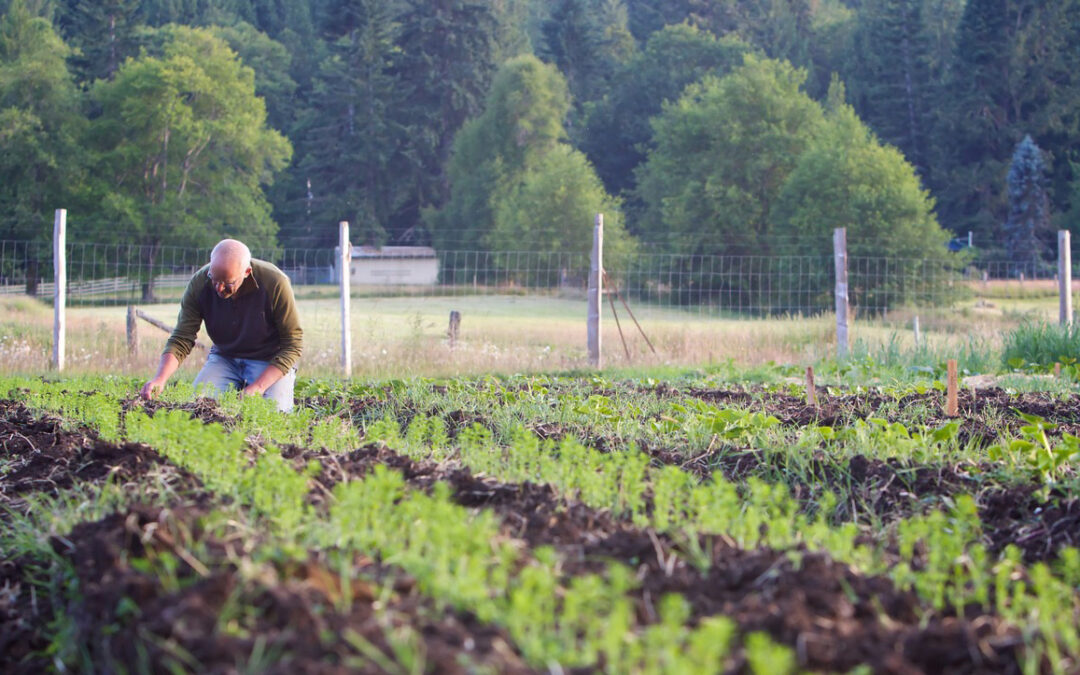Things are getting hotter, wetter, windier and wilder these days. The record-breaking heat wave that we experienced at the end of June showed us what happens when it gets SO HOT. Leaves of berry plants burn; peas stop growing; some crops die or don’t set seeds.
On the other hand, many plants are not bothered by extreme heat and some, such as soybeans or amaranth, even thrive in it.
To get a grip on the effects of climate change is important if we are to maintain seed and food security. Focused observation is crucial if we are to do so. If peas stop growing when it gets very hot, we need to plant them earlier or in shadier, cooler locations. Possibly, we can find pea varieties with more heat tolerance.
The best strategy for successfully growing food in these unprecedented times can be summed up by one word: diversity.
It’s good to plant peas at different times and in different places but, best of all, is to stagger the plantings of a wide variety of crops. In a cool year, peas, chickpeas and fava beans will thrive; in a hot one, beans, soybeans, corn and squash will.
A diversity of plants that support birds, bugs, bees and butterflies also supports many food crops and helps hold everything together.
For a community to become self-reliant in food, there needs to be a diversity of growers as well as a diversity of crops being grown. And, of course, you need to have many people saving seeds as well as growing food.
Over 30 years ago, Vancouver led the way in establishing an annual seed exchange for seed savers and seed companies to keep seeds alive and thriving at the grass roots’ level. The very first Seedy Saturday was held at VanDusen Botanical Garden in Vancouver, Canada, in 1990.
Seedy Saturdays and Sundays have sprung up across the country since then. Practically every community in BC now has one. They are public events, for the betterment of the local gardening community, usually organized and operated by volunteers. They bring together home gardeners, seed savers, native plant collectors, agriculture conservation groups, and community gardeners as well as seed companies that sell locally grown, open-pollinated, non-GMO varieties of vegetables, fruits, flowers, grains and herbs.
Because of Covid and climate uncertainty, this is a good time not to dedicate all of a community’s seed saving potential to a single day. You never know when that event might be cancelled. An excellent way to diversify and maximize seed resilience would be to establish a city-wide online seed exchange.
Such a community seed exchange would be easy to create and maintain.It would need just a few computer-adept people to post and update the website on a regular basis.The site would list the names and contact information for people offering seeds as well as descriptions of seeds being offered. It will also have a list of people looking for specific seeds.
There are several ways such an exchange can enhance food and seed security in Vancouver.
With this flexible system, seed exchanges could happen at any time, unlike having one at a specific date. An online seed directory wouldn’t replace Vancouver’s Seedy Saturday but would cover many more contingencies.
People could make their own arrangements for dropping off or picking up seeds. Email, snail mail, texting or telephoning all could work to set up a greeting and exchange location. Seeds could be sent through Canada Post or dropped off at a convenient place. Most people would probably opt to meet each other and talk about the seeds, thus fostering community knowledge, networking and resourcefulness.
A community seed exchange would also act as a database for locally grown seeds. In the event of a natural or unnatural calamity, it would be easily possible to rebuild the seed base thanks to the diversity of people maintaining seeds.
In all likelihood, we will need to grow more of our own food in coming years. Having the seeds to do so is probably the most important way to prepare for taking care of ourselves when we can no longer rely on imported food.


